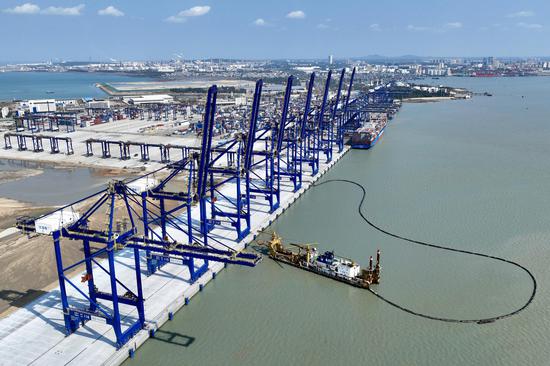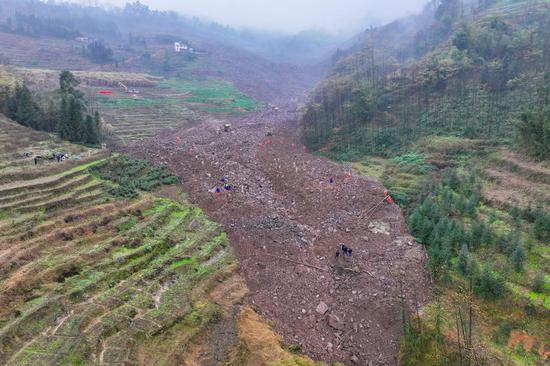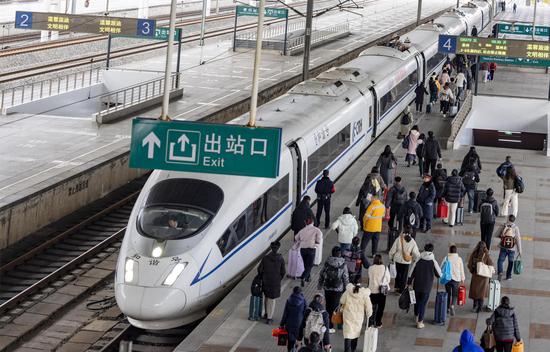Comprehensive public health strategy urged amid surging overdose deaths
The United States consumes more illicit drugs than any other country, according to the World Population Review, which estimated that 6 percent of people in the U.S. use drugs, reducing their average lifespan by 6.7 years.
In 2023, more than 107,000 people died from drug overdose, according to the U.S. Drug Enforcement Administration, with illicit fentanyl having the deadliest consequences. The synthetic opioid accounted for about 75 percent of overdose deaths.
Opioid abuse in the U.S. started in the 1990s when doctors widely over-prescribed opioid medicines for pain relief, the National Institutes of Health said on its website.
When the prescriptions were significantly reduced in the early 2000s, no safer alternative to pain management emerged, which led to the illegal use of opioids. Related overdose deaths started to rise in the 2010s.
"The public health crisis of poorly managed pain, opioid misuse, addiction, and overdose in America is now in its fourth wave," the website said.
To combat the drug problem, U.S. President Donald Trump has implemented a strategy to tie the fentanyl supply to international tariffs. However, many experts say that tariffs will not help solve the country's fentanyl crisis.
Dewardric McNeal, managing director and senior policy analyst at Longview Global in Washington, served on a bipartisan commission in 2020 to examine all aspects of the synthetic opioid threat to the U.S. and find ways to combat the problem.
"Despite the wide range of recommendations and months of discussion, the linkage of trade policy to narcotics enforcement was never seriously discussed, and many would argue that the linkages not only set a dangerous precedent but could in fact reduce the willingness of countries like Mexico and specifically China to cooperate as we seek to address this serious challenge," McNeal wrote in an op-ed for CNBC.
"China is unlikely to respond positively to threats. If anything, it may reduce cooperation, with China seeing no real value in doing anything under duress," he wrote.
Reducing demand
"No amount of tariffs will curb addiction", and the U.S. government needs to come up with "a comprehensive strategy" to reduce people's demand for the drug, he added.
"Weaponizing trade policy for unrelated issues — whether immigration, drugs or security — erodes America's credibility as a reliable economic partner. Most importantly and unfortunately, they will not stem the flow of fentanyl."
Rodney Coates, a professor at Miami University in Ohio, who studies social policy, shared that view.
Examining U.S. policy to curb drug use since the 1890s, Coates, in an op-ed piece for The Conversion, said past U.S. government efforts to reduce illegal drug use have not been especially effective.
The U.S. had implemented tariffs in the past, but they never helped the domestic economy, he said.
"This long history has shown that tariffs, industrial subsidies and protectionist policies don't do much to stimulate broad economic growth at home — but they raise prices for consumers and can even lead to global economic instability," Coates wrote.
"History also shows that tariffs don't work especially well as negotiating tools, failing to effect significant policy changes in targeting countries.
"Failure to restrict demand only places bandages on hemorrhaging wounds. What the U.S. needs is a more systematic approach to deal with the demand that's fueling the drug crisis."
Both McNeal and Coates said it is not easy to combat the opioid crisis.
"What's needed is a comprehensive strategy that includes addiction treatment, mental health services, public health campaigns, and community-based interventions," McNeal said.
Coates pointed to European countries such as Switzerland and France, where drug addictions are being treated rather than being criminalized to reduce demand.
"They realized that demand is what fuels the illicit market. And as any economist will tell you, supply will find a way if you don't limit the demand," Coates said.


















































 京公網(wǎng)安備 11010202009201號
京公網(wǎng)安備 11010202009201號